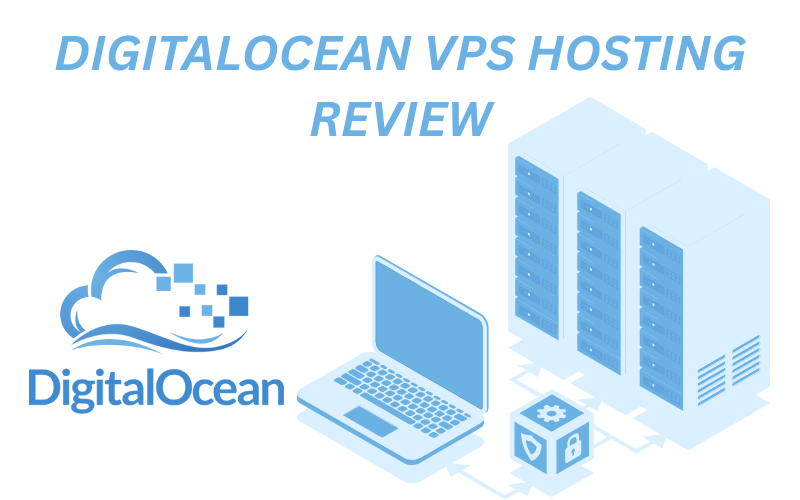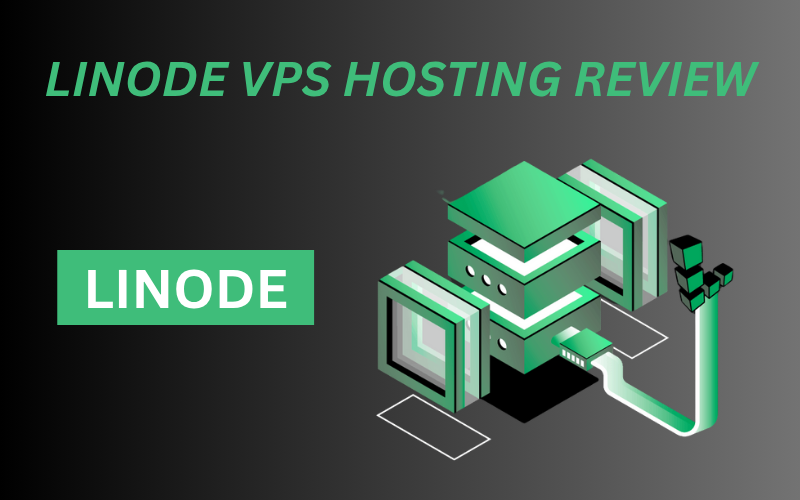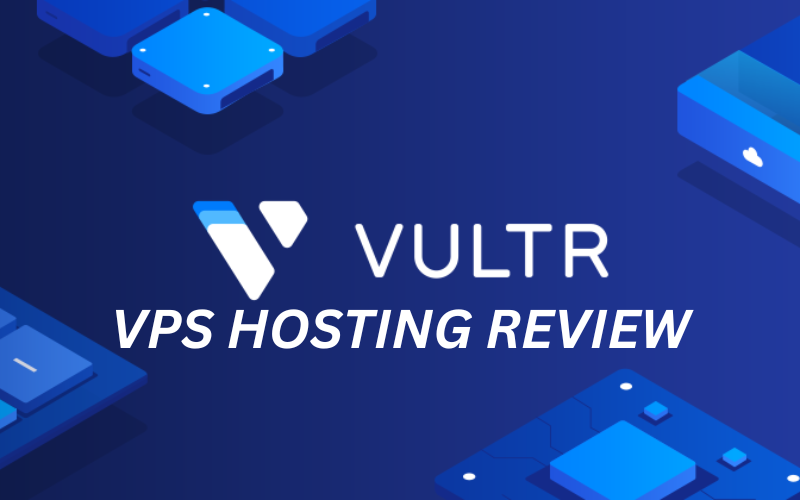Introduction to VPS Hosting
Virtual Private Server (VPS) hosting is an ideal solution for website owners who have outgrown shared hosting but aren’t quite ready for dedicated servers. It offers dedicated resources, more control, better security, and scalability at a fraction of the cost of a dedicated server. VPS hosting uses virtualization technology to split a physical server into multiple virtual servers, giving each user dedicated CPU, RAM, and storage.
Discover the best VPS hosting services with expert analysis on performance, scalability, pricing, and support. Find the ideal virtual private server to host your growing website, app, or online business with full control and reliability.
In 2025, VPS hosting remains one of the most popular options for bloggers, small businesses, developers, and ecommerce sites looking for reliable performance without the high costs of dedicated infrastructure. Choosing the right VPS provider can be challenging with so many options available, each offering different features, pricing, and support.
This in-depth guide covers the 7 best VPS hosting providers in 2025, offering comprehensive reviews to help you pick the best VPS host based on your needs, budget, and technical skills.

DigitalOcean VPS Hosting Review
Quick Summary
DigitalOcean is a cloud-first VPS provider known for its simplicity, developer-friendly features, and excellent performance. It is especially popular among developers and startups for its robust API and flexible configurations.
Pros and Cons
Pros:
- Developer-focused with powerful APIs and automation tools
- Wide range of droplet sizes and configurations
- High-performance SSD storage and fast networking
- Predictable and transparent pricing
- Global data centers for low latency
Cons:
- Steeper learning curve for beginners
- Limited managed services compared to competitors
- No phone support; only tickets and chat
Features
DigitalOcean provides fully scalable droplets (VPS instances) with dedicated CPU options, block storage, floating IPs, private networking, Kubernetes, and load balancers. It offers one-click apps, managed databases, and monitoring tools.
Specifications and Configurations
Droplet plans start from 1 GB RAM, 1 vCPU, 25 GB SSD, and 1 TB bandwidth for $5/month. High-end plans go up to 192 GB RAM with dedicated CPUs and NVMe storage. Users can customize CPU, RAM, storage, and data center locations.
Who Is It For?
DigitalOcean is ideal for developers, startups, and tech-savvy users who want full control over VPS with modern cloud infrastructure and automation tools.
Why Choose DigitalOcean?
Choose DigitalOcean if you want a cost-effective, scalable VPS with developer-friendly APIs and a strong community for support. It’s perfect for running custom web apps, SaaS platforms, or containerized environments.
Advantages
DigitalOcean’s advantages lie in its flexibility, reliable performance, and strong ecosystem of tutorials and community support. It integrates well with modern DevOps tools and offers consistent uptime.
Conclusion
DigitalOcean remains a leading VPS provider for developers seeking scalable, cloud-native infrastructure without the complexity of big cloud vendors.

Linode VPS Hosting Review
Quick Summary
Linode is one of the oldest and most respected VPS providers, offering reliable performance, developer-friendly features, and straightforward pricing.
Pros and Cons
Pros:
- Simple pricing with no surprises
- Wide range of VPS plans including high-memory and dedicated CPU options
- Solid network infrastructure and global data centers
- Good customer support with phone, chat, and ticket systems
- Free migration assistance
Cons:
- No managed VPS plans by default
- Dashboard less modern than some competitors
- Limited Windows VPS support
Features
Linode provides SSD VPS hosting with DDoS protection, backups, node balancers, private IP addresses, and integrated firewalls. It supports over 11 data center locations worldwide.
Specifications and Configurations
Plans start at 1 GB RAM, 1 CPU, 25 GB SSD, and 1 TB transfer for $5/month. Users can scale to 192 GB RAM and 32 CPUs. The Linode Manager dashboard allows easy server management.
Who Is It For?
Linode is suitable for developers, agencies, and businesses looking for stable VPS hosting with transparent pricing and global infrastructure.
Why Choose Linode?
Choose Linode if you want affordable VPS with excellent uptime and network speeds, combined with decent support options and a strong community.
Advantages
Linode excels in providing predictable pricing, ease of use for VPS deployment, and good server performance at scale.
Conclusion
Linode is a dependable VPS provider with a long track record and solid infrastructure, ideal for users needing a reliable VPS without complex cloud offerings.

Vultr VPS Hosting Review
Quick Summary
Vultr is a cloud VPS provider known for its global data center presence, flexible plans, and straightforward pricing, catering to developers and small businesses.
Pros and Cons
Pros:
- Large selection of global data centers (25+ locations)
- Custom ISO upload and dedicated instances available
- Powerful control panel with one-click app deployment
- Hourly and monthly billing flexibility
- SSD storage across all plans
Cons:
- Customer support can be slow at times
- No phone support, only tickets and chat
- Limited managed hosting features
Features
Vultr offers SSD VPS with DDoS protection, private networking, automatic backups, snapshots, and API access. It also provides bare metal servers and block storage options.
Specifications and Configurations
Basic plans start at 1 CPU, 1 GB RAM, 25 GB SSD, and 1 TB bandwidth for $5/month. High performance plans include dedicated CPU options and up to 96 GB RAM.
Who Is It For?
Vultr targets developers and startups needing affordable VPS hosting with global reach and flexibility.
Why Choose Vultr?
Vultr’s geographic diversity and flexible billing make it suitable for projects requiring low latency and budget-friendly, scalable VPS solutions.
Advantages
Vultr’s strength lies in its wide data center coverage, developer-centric features, and cost-effective hourly billing.
Conclusion
Vultr is a solid VPS host for users who want flexible global deployment options combined with straightforward pricing.
Bluehost VPS Hosting Review
Quick Summary
Bluehost is a well-known web hosting provider offering VPS plans aimed at users transitioning from shared hosting needing more power.
Pros and Cons
Pros:
- Easy upgrade from shared to VPS hosting
- Managed VPS with cPanel and WHM included
- 24/7 customer support with phone, chat, and ticket options
- Good uptime and solid security features
- Free domain and SSL certificates included
Cons:
- VPS plans are pricier than some competitors
- Limited customization compared to unmanaged VPS
- Renewal rates can be high
Features
Bluehost’s VPS hosting includes root access, enhanced cPanel management, resource monitoring, and proactive security features. Plans come with guaranteed CPU and RAM allocation.
Specifications and Configurations
Plans start at 2 CPU cores, 2 GB RAM, 30 GB SSD storage, and 1 TB bandwidth for $19.99/month. Higher tiers offer up to 4 CPUs and 8 GB RAM.
Who Is It For?
Bluehost VPS is best for small to medium-sized business owners or individuals upgrading from shared hosting who want managed VPS without technical hassle.
Why Choose Bluehost?
Choose Bluehost if you want a managed VPS with good customer support, easy management, and reliable uptime in a familiar hosting environment.
Advantages
Bluehost provides a smooth transition from shared hosting, backed by professional support and enhanced security for VPS users.
Conclusion
Bluehost offers reliable managed VPS hosting for users who prefer ease of use and integrated management tools.
Hostinger VPS Hosting Review
Quick Summary
Hostinger offers affordable VPS hosting with strong performance and beginner-friendly tools, making it popular among small businesses and developers.
Pros and Cons
Pros:
- Low-cost VPS hosting starting at $3.95/month
- SSD storage and full root access
- Easy-to-use custom control panel (hPanel)
- Good speed and uptime
- Supports multiple operating systems
Cons:
- No phone support; only live chat and ticketing
- Limited advanced managed services
- Backup services can be costly
Features
Hostinger VPS includes dedicated IPs, full root access, DDoS protection, scalable resources, and SSD storage. It also offers 24/7 support and automatic OS reinstall options.
Specifications and Configurations
Plans range from 1 CPU, 1 GB RAM, 20 GB SSD, and 1 TB bandwidth to 8 CPUs and 16 GB RAM.
Who Is It For?
Hostinger VPS suits budget-conscious users needing a performant VPS with easy management and good support.
Why Choose Hostinger?
Choose Hostinger if you want affordable VPS hosting with solid uptime and a user-friendly interface for beginners.
Advantages
Hostinger’s biggest advantage is combining low price with good VPS performance and usability.
Conclusion
Hostinger offers a compelling VPS hosting solution for those who want solid performance without a hefty price tag.
InMotion VPS Hosting Review
Quick Summary
InMotion Hosting offers powerful VPS solutions with managed and unmanaged options, focusing on business-class performance and support.
Pros and Cons
Pros:
- Managed VPS plans with free cPanel and WHM
- 99.9% uptime guarantee with SSD storage
- Free website migration and backups
- U.S.-based 24/7 expert support
- Scalable RAM, CPU, and storage
Cons:
- Pricier than some unmanaged VPS hosts
- Limited data center locations (mostly U.S.)
- Some plans require annual billing
Features
InMotion VPS features free SSL, DDoS protection, root access, multi-layered security, automatic backups, and optimized server stacks for WordPress.
Specifications and Configurations
Plans start at 2 CPUs, 4 GB RAM, 75 GB SSD storage, and 4 TB bandwidth, scaling to 8 CPUs and 260 GB SSD.
Who Is It For?
InMotion VPS is perfect for businesses and developers wanting managed VPS with excellent support and uptime.
Why Choose InMotion?
Choose InMotion for reliable managed VPS with strong customer support and business-ready features.
Advantages
InMotion excels with managed services, security, and high resource allocations suitable for professional sites.
Conclusion
InMotion Hosting provides premium managed VPS hosting ideal for business-critical websites and applications.
A2 Hosting VPS Review
Quick Summary
A2 Hosting is known for speed-optimized VPS hosting, focusing on Turbo servers and developer-friendly tools.
Pros and Cons
Pros:
- Turbo Servers with up to 20x faster page loads
- Managed and unmanaged VPS options
- Free site migration and SSD storage
- Anytime money-back guarantee
- Multiple Linux distributions supported
Cons:
- Higher pricing on Turbo VPS plans
- Support quality can vary
- Data centers limited to U.S. and Europe
Features
A2 Hosting offers Turbo VPS for high performance, root access, cPanel options, free backups, and DDoS protection.
Specifications and Configurations
Plans range from 1 CPU, 2 GB RAM, 150 GB SSD to 8 CPUs and 8 GB RAM with Turbo options available.
Who Is It For?
A2 Hosting targets developers and businesses prioritizing speed and flexibility in VPS hosting.
Why Choose A2 Hosting?
Choose A2 Hosting if you want one of the fastest VPS hosting solutions with flexibility to manage or delegate server administration.
Advantages
A2 Hosting stands out for its speed enhancements and developer-friendly features.
Conclusion
A2 Hosting delivers VPS hosting tailored for speed and performance-conscious users..
Check The Full Review Of Best WordPress Hosting
Final Thoughts on Choosing the Best VPS Hosting in 2025
Selecting the best VPS hosting depends heavily on your technical expertise, budget, performance needs, and level of management desired. Developers may gravitate toward DigitalOcean, Linode, or Vultr for full control and flexible cloud infrastructure. Businesses wanting managed services and support might prefer Bluehost or InMotion Hosting. Those prioritizing affordability will find Hostinger and Vultr attractive, while speed-focused users can rely on A2 Hosting’s Turbo VPS.
Each provider has unique strengths and trade-offs. The key is matching your current and future needs to a host’s features, support, and pricing model. This comprehensive review equips you with detailed knowledge to make an informed decision that supports your website’s growth and success in 2025.
Frequently Asked Questions About VPS Hosting
What is VPS hosting and how does it differ from shared and dedicated hosting?
VPS hosting splits a physical server into multiple virtual servers, giving you dedicated resources and greater control than shared hosting, where resources are shared among many users. It is less expensive than dedicated hosting but offers better performance, security, and customization. VPS bridges the gap between shared and dedicated hosting.
Do I need technical knowledge to use VPS hosting?
It depends on the provider and plan. Managed VPS plans offer support and tools that make VPS easier for beginners, while unmanaged VPS requires server administration skills. Many providers offer tutorials and customer support to assist users.
How much does VPS hosting cost in 2025?
Pricing varies widely, starting as low as $3–$5 per month for basic plans, up to $100+ per month for high-end managed VPS or dedicated resources. Factors include CPU, RAM, storage, bandwidth, management level, and extra services.
Can I upgrade my VPS plan later?
Yes, most VPS providers offer scalable plans, allowing you to add CPU, RAM, and storage or move to a higher tier without downtime or data loss.
Is VPS hosting secure?
VPS is more secure than shared hosting because of resource isolation and root access, allowing you to install security software and configure firewalls. However, security also depends on proper management and updates.
What operating systems are available on VPS hosting?
Most VPS hosts support various Linux distributions (Ubuntu, CentOS, Debian, etc.) and some also offer Windows Server options. You can choose based on your application needs.
How is VPS hosting performance compared to shared hosting?
VPS offers dedicated CPU, RAM, and storage, resulting in faster loading times, better reliability, and the ability to handle higher traffic than shared hosting.
Can VPS hosting handle ecommerce websites?
Yes, VPS is ideal for ecommerce sites needing higher security, performance, and customization. Many hosts provide SSL, PCI compliance tools, and enhanced support for online stores.
What kind of support can I expect with VPS hosting?
Support varies by provider and plan. Managed VPS typically includes 24/7 expert support, server monitoring, and maintenance, while unmanaged VPS relies more on user technical skill.
How do I choose the best VPS hosting provider for my needs?
Consider your budget, technical expertise, traffic expectations, required resources, desired management level, and support quality. Compare plans, reviews, and features to find a provider matching your priorities.

